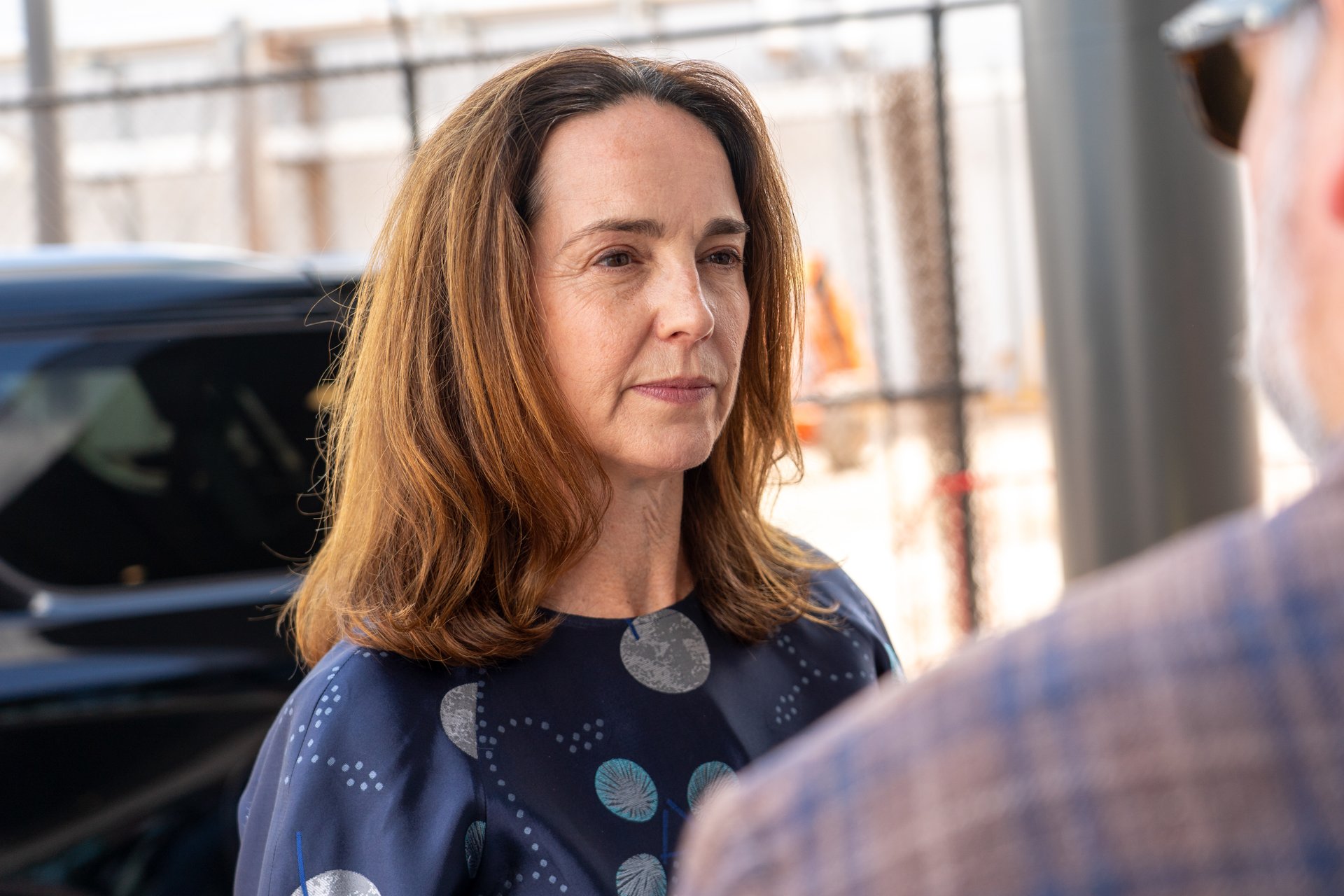OpenAI does damage control after a top exec talked government support for its spending spree
The company cleaned up comments supporting a government guarantee so AI firms can maintain their huge spending on chips and new data centers

Sarah Friar, chief financial officer of OpenAI Inc., during a media tour of the Stargate AI data center in Abilene, Texas, US, on Tuesday, Sept. 23, 2025. (Kyle Grillot/Bloomberg via Getty Images)
OpenAI is cleaning up comments from a top executive who endorsed a federal backstop for the AI startup's enormous research and development spending. She walked it back within hours, and soon CEO Sam Altman also chimed in.
Suggested Reading
"OpenAI is not seeking a government backstop for our infrastructure commitments," OpenAI CFO Sarah Friar said in a social media post on late Wednesday. "I used the word 'backstop' and it muddied the point."
Related Content
Friar added that she had intended to say U.S. tech capabilities rests on the ability to expand industrial capacity with government and the private sector working in tandem.
The firm's efforts at damage control began after Friar expressed support for a government guarantee so AI firms like OpenAI can maintain their spending spree on chips and new data centers. Those remarks came at a tech conference organized by The Wall Street Journal.
Friar said there that a backstop "can really drop the cost of the financing, but also increase the loan to value, so the amount of debt that you can take on top of an equity portion."
When The Journal asked Friar whether she meant a federal backstop, Friar responded: "Exactly."
"I think the U.S. government in particular, has been incredibly forward leaning, has really understood that AI is almost a national strategic asset," Friar said. "That we really need to be thoughtful when we think about competitive competition with, for example, China."
Friar added that the company has consistently been given a seat at the White House to weigh in on AI-related issues, including a government guarantee. The White House did not immediately respond to a request for comment.
It did provoke blowback from the White House. President Donald Trump's AI czar David Sacks quickly shut down the possibility of large-scale bailouts for AI firms.
"There will be no federal bailout for AI. The U.S. has at least 5 major frontier model companies," Sacks said in a Thursday social media. "If one fails, others will take its place."
OpenAI is now a firm with a valuation of $500 billion. The AI giant has inked $1.1 trillion in agreements with chipmaking companies and cloud computing firms to propel an almost unchecked rise. On Monday, OpenAI announced a $38 billion deal with Amazon to widen its cloud computing services over seven years.
"We believe that governments should not pick winners or losers, and that taxpayers should not bail out companies that make bad business decisions or otherwise lose in the market," Altman wrote in a lengthy social media post on Thursday. "If one company fails, other companies will do good work."
In a recent podcast interview with investor Brad Gerstner, Altman batted down questions about maintaining the company's huge spending commitments while earning only a small fraction in revenue. OpenAI, the maker of ChatGPT, still hasn't turned a profit in its nascent existence. Friar said earlier this year that the company was projected to earn $13 billion in revenue in 2025.
Still, concerns linger among analysts about the potential for an AI bubble that could pop and wreak havoc on an economy already demonstrating signs of stalling out. Altman later said that the federal government shouldn't step in and rescue failing AI companies if they crash into trouble.
Other business executives believe the AI sector should adopt a hands-off approach that doesn't invite the government to step in with bailouts when a company verges on bankruptcy.
"Most of the AI spending is concentrated in a few firms that are incredibly rich and can afford to lose the money there," Matt Calkins, CEO of software development firm Appian, recently told Quartz. "I don't think it ought to be too big to fail. I see Sam Altman trying. I see OpenAI doing big deals with so many different partners that they won't want OpenAI to fail."
